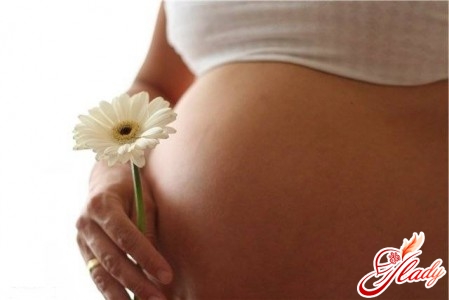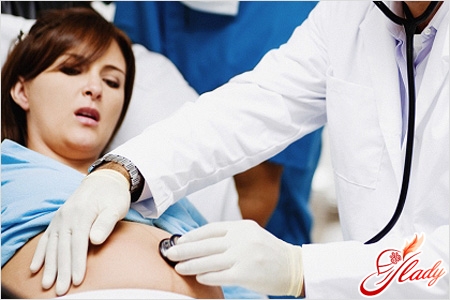
Drinking fluids during pregnancy
Pregnancy is one of the most important stageslife of a woman, because she is responsible for two lives at once: the life of the baby and her own. Notice how a woman literally changes before your eyes, as soon as she finds out that she is no longer alone. Her movements become more careful, and even the timbre of her voice becomes softer. Nature itself constantly reminds a woman of the honorable mission that has fallen to her lot: to give the world a new life. Throughout all nine months of pregnancy, a woman, for the sake of the health of the future baby, has to limit herself in many things. One of these restrictions is fluid intake. The question of how much fluid to drink during pregnancy has been a favorite topic for heated debate and discussion for several decades, both among gynecologists and expectant mothers themselves. According to one side, fluid intake during pregnancy should be strictly limited, while the opposing side claims that the fact of how much water to drink during pregnancy does not affect its normal course in any way. In order to decide whose side you will take and determine for yourself how much water you should drink during pregnancy, you need to have a good understanding of the role that water plays in the human body, and in the pregnant woman in particular.
The importance of water in human life
No doubt, everyone remembers from schoolbiology that the human body is approximately 70% water. However, few people remember in detail what function water performs in the human body.
- The chemical composition of the blood contains more than 95% of the water. Accordingly, water is responsible for the dissolution of the necessary substances in the human body and their transfer.
- Water actively participates in such a vitalprocess, like hydrolysis. In the process of hydrolysis, a complex chemical substance that can not be assimilated in this form by the human body is split into simpler ones, the assimilation of which does not cause any difficulties.
- Water is a part of various biological lubricants, such as, for example, articular lubrication.
- Tears, gastric juice, bile, lymph and other biological fluids are also more than 90% composed of water.
- Cells and molecules of the body, including DNA, also contain 95% water in their composition.
Water and Pregnancy
 During pregnancy, especially in the first onehalf, the need for water increases significantly. Water is necessary for the full development of the embryo, for the formation of amniotic fluid. In addition, the waste products of the fetus enter the mother's blood, and only then are filtered by the kidneys and excreted from the body along with urine. As pregnancy develops, the volume of waste products of the fetus that must be excreted from the mother's body increases, the amount of amniotic fluid also increases, as does the volume of circulating blood. Thanks to the so-called "genetic" memory, the body of even a primiparous woman begins to store water for future use several months before childbirth, knowing how much water is lost during the birth itself and immediately after it. However, at this stage, the risk of edema arises if the body does not calculate and exceeds the required water supply. It is then that the woman first faces the question: how much can pregnant women drink?
During pregnancy, especially in the first onehalf, the need for water increases significantly. Water is necessary for the full development of the embryo, for the formation of amniotic fluid. In addition, the waste products of the fetus enter the mother's blood, and only then are filtered by the kidneys and excreted from the body along with urine. As pregnancy develops, the volume of waste products of the fetus that must be excreted from the mother's body increases, the amount of amniotic fluid also increases, as does the volume of circulating blood. Thanks to the so-called "genetic" memory, the body of even a primiparous woman begins to store water for future use several months before childbirth, knowing how much water is lost during the birth itself and immediately after it. However, at this stage, the risk of edema arises if the body does not calculate and exceeds the required water supply. It is then that the woman first faces the question: how much can pregnant women drink?
Which water should I prefer?
If your pregnancy is going well,you do not suffer from swelling, you should not feel guilty and constantly think: "am I drinking too much water?" If you really start to drink too much liquid, your body will immediately let you know about it. It is very important to pay attention not only to how much liquid you can drink during pregnancy, but also to what kind of water is most useful for pregnant women to drink. Drinking liquids such as tea, coffee and lemonades is extremely undesirable for a number of well-known reasons. That is why we will talk about water further.
- Carbonated water is one of your favoritedrinks of most people. However, is carbonated water safe in pregnancy? If it is a question of sweet carbonated water, it definitely does not bring the body to women and the future baby anything but harm. This is explained by the fact that the composition of such water includes a large number of chemically synthesized substances: all kinds of dyes and preservatives. In addition, sweet mineral water prevents the full absorption and promotes active leaching from the body of a vital substance such as calcium. As a result of a lack of calcium, tooth decay, the separation of the nails of a pregnant woman and, most terrible, this can lead to the birth of a child with a low body weight and a lack of sufficient calcium that the baby should normally receive during pregnancy from the mother's body.
- Carbonated mineral water during pregnancymuch safer than lemonades, but you shouldn't abuse it too much either. If in the first trimester of pregnancy mineral water can help cope with toxicosis and relieve bouts of nausea, then in the second half carbonic acid, which is contained in carbonated water, can cause a bout of severe heartburn. In addition, carbonated water very often causes bouts of flatulence in pregnant women. And sodium salts, contained in large quantities in any mineral water, put additional stress on the kidneys, which, ultimately, can lead to the appearance of edema.
Dill is becoming increasingly popular nowwater during pregnancy. If earlier dill water was brewed and given only to infants, now more and more expectant mothers drink it. According to these women, dill water allows them not to think about: "I drink a lot of water during pregnancy." After all, dill water not only perfectly quenches thirst, but also perfectly removes edema. In addition, dill water quickly and effectively relieves attacks of flatulence, which so often torment most pregnant women.
Required amount of liquid
If the question is about what to drink, more or lessis clear, then the question of how much pregnant women need to drink is more complicated. According to the most average data, a pregnant woman should not drink more than three liters of liquid per day. Moreover, these three liters of liquid include the water contained in your food, for example, in soup or juicy vegetables. However, these data are very, very approximate. The need for liquid depends on many factors: the weather outside, the room temperature, the woman's physical activity and even what exactly the pregnant woman ate. And only your doctor can tell you exactly how much you need to drink based on laboratory tests, visual examination and other objective data. This is absolutely correct. There cannot be a single recommendation regarding how much liquid pregnant women can drink. Some women do not have the slightest hint of a tendency to edema. Some women develop swelling very quickly if they ignore their gynecologist's advice on how much liquid they can drink, but it also disappears just as quickly once they restore the recommended drinking regime. However, swelling is not always the result of excessive fluid abuse. In some cases, even if a woman does not violate the doctor's instructions on how much she can drink, the swelling becomes stronger and does not go away. In this case, a woman should sound the alarm and immediately contact her gynecologist or any medical institution to rule out gestosis.
Gestosis
 Gestosis is also called "second toxicosis"half of pregnancy". When gestosis occurs, the normal functioning of many vital organs is disrupted, and the cardiovascular system suffers most severely. The very first sign of gestosis is the appearance of edema, popularly known as "dropsy of pregnant women". In the absence of timely qualified treatment, gestosis can lead to the most tragic consequences. But if you consult a doctor in a timely manner, it is easily treated and does not have a negative impact on the development of the fetus. This is why it is unacceptable to ignore the appearance of edema in a pregnant woman.
Gestosis is also called "second toxicosis"half of pregnancy". When gestosis occurs, the normal functioning of many vital organs is disrupted, and the cardiovascular system suffers most severely. The very first sign of gestosis is the appearance of edema, popularly known as "dropsy of pregnant women". In the absence of timely qualified treatment, gestosis can lead to the most tragic consequences. But if you consult a doctor in a timely manner, it is easily treated and does not have a negative impact on the development of the fetus. This is why it is unacceptable to ignore the appearance of edema in a pregnant woman.
Tasty and healthy
Below are several recipes for making drinks that are especially suitable for a hot summer day, perfectly quenching thirst and bringing only benefits to the body of the expectant mother:
- To prepare a homemade refreshing lemonadefor 6 servings you will need: 1 liter of table drinking water, 400 grams of ice cubes 50 grams of fresh mint and 4 lemons or lime, for your taste. Pre-cut the lemon or lime with thin slices, chop the mint leaves and put them into glasses. After that, use a blender to crush into ice cubes. Fill the iced cups to the top, then pour water. The edge of the glass at will can be decorated with a slice of lemon. Drink lemonade preferably through a tube, in order to avoid the occurrence of colds, especially angina. Myata will give you an exceptional feeling of freshness and coolness, and lemon will contain so much vitamin C during pregnancy.
- If you are not very fond of citrus fruits, you can prepare lemonade according to a similar pattern, using those fruits that you like.
- If you are a fan of dairy products,you will like the following recipe. In advance, buy a liter of milk and 10 glasses of the most common ice cream on vegetable fats. Mix the milk and ice cream with a mixer or blender. You can also add any fruits for the season. Of course, sometimes the restrictions imposed on the life of a pregnant woman can upset you. However, meeting with your long-awaited treasure will make you quickly forget about all the inconveniences. We wish you a pleasant pregnancy and the easiest birth!
We recommend reading:









